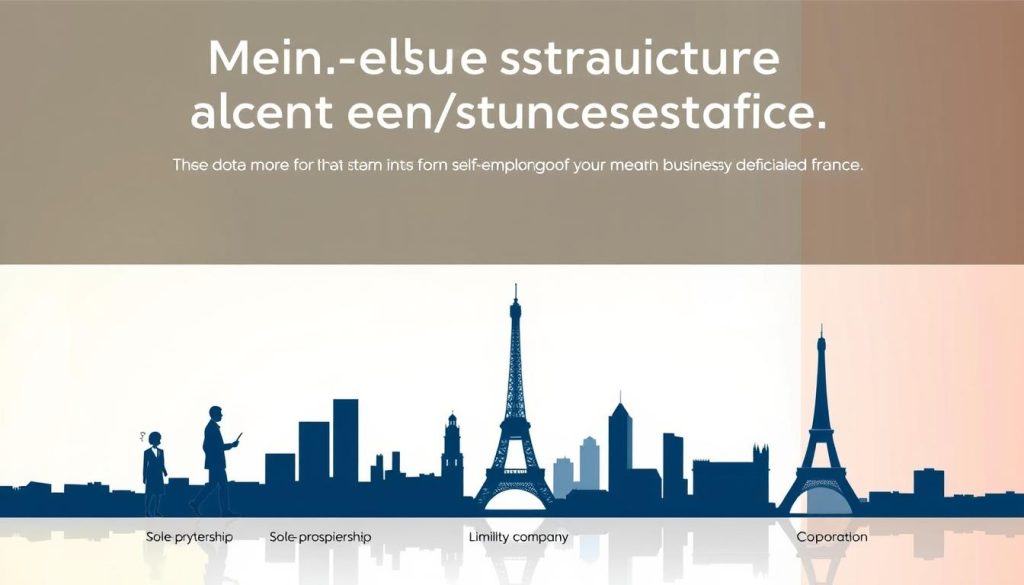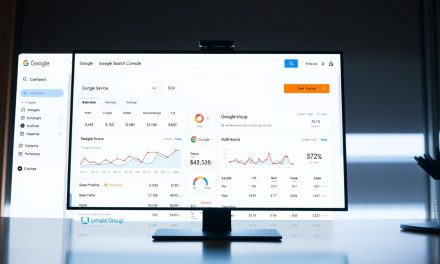Imagine sipping coffee at a Parisian café, laptop open, as you build a career that aligns with your passions. For many, this dream comes with questions: How do I protect my income? What support exists for my ambitions? France’s thriving community of over 3 million independent workers proves it’s possible to blend freedom with security.
In 2021, nearly 13% of the workforce chose self-reliance—a path supported by robust social systems. Whether you’re launching a consulting firm or creative venture, understanding the framework here ensures stability. Universal healthcare, paid leave, and structured tax systems allow you to focus on growth.
This guide simplifies France’s landscape for ambitious creators. We’ll explore how to register your activities, comply with banking rules, and leverage client acquisition strategies tailored to local markets. Our goal? To help you thrive without compromising peace of mind.
Table of Contents
Key Takeaways
- France supports over 3 million independent workers with universal healthcare and social security benefits.
- Registration processes and legal structures vary by business type—choose wisely for tax efficiency.
- Paid sick leave and parental benefits provide critical safety nets for freelancers.
- Banking requirements and invoicing standards ensure compliance with French regulations.
- Localized marketing strategies enhance visibility in competitive industries.
Introduction to the French Self-Employment Landscape
Recent reforms have transformed how freelancers and entrepreneurs access essential protections in France. The 2018 Social Security overhaul marked a critical shift, replacing the fragmented RSI system with unified coverage under national schemes. Today, independent workers enjoy streamlined access to healthcare, retirement plans, and disability support through established institutions.
Three key organizations now manage your safeguards:
CPAM handles health and maternity coverage,
Carsat oversees pension contributions, and
Urssaf coordinates social charge payments. This coordinated approach reduces administrative hurdles while maintaining robust protections. « The new structure mirrors benefits available to salaried employees, » notes a government report on labor modernization.
France’s framework uniquely balances autonomy with security. Entrepreneurs retain full control over their work while accessing:
- Subsidized healthcare through local insurance funds
- Parental leave allowances matching corporate policies
- Progressive retirement contribution models
Understanding this ecosystem proves vital when launching a business. The integration with national social security systems ensures stability, letting creators focus on growth rather than bureaucratic complexities. With 84% of independent workers reporting satisfaction with current protections in recent surveys, France’s model demonstrates how innovation thrives within structured support.
Advantages and Challenges of Self-Employment in France

Navigating France’s freelance landscape offers unique opportunities but requires balancing flexibility with trade-offs. The micro-entrepreneur regime simplifies tax filings and accounting, letting you focus on client projects instead of paperwork. With VAT exemptions for earnings under €36,500 (services) or €94,300 (goods), pricing becomes more competitive compared to traditional companies.
Lower social charges—22% of revenue versus 45% for standard businesses—free up funds for tools or training. This cost-saving benefit helps small ventures scale without heavy upfront investments. Yet unlike salaried workers, you won’t receive paid leave, requiring a savings strategy for vacations or sick days.
Operational expenses like software or equipment aren’t deductible under this structure. A graphic designer earning €30,000 annually, for example, pays taxes on the full amount—not net profits. While this simplifies bookkeeping, it demands careful budgeting for overheads.
France’s system prioritizes security through healthcare access and retirement plans, but independence means self-managing risks. By weighing these factors early, you can build a resilient business model that aligns with both financial goals and lifestyle preferences.
Defining Your Professional Path: Regulated vs. Unregulated Professions
Your career journey in France begins with a critical choice: aligning your skills with either regulated or unregulated sectors. This decision shapes everything from licensing requirements to daily operations. Let’s demystify how each category operates within French law.
Identifying Regulated Professions
Regulated professions enforce strict entry and practice standards. Architects, lawyers, and healthcare providers fall under this category. To operate legally, you must:
- Hold recognized certifications (e.g., Ordre des Médecins for doctors)
- Follow ethical codes monitored by professional chambers
- Renew licenses periodically through governing bodies
These rules ensure quality control but require upfront investments in education and compliance. For example, accountants must complete 8 years of training before joining the Ordre des Experts-Comptables.
Exploring Unregulated Liberal Professions
Creative and tech-focused activities like web design or translation offer more flexibility. No formal oversight bodies exist here, letting you:
- Set customized service rates
- Choose preferred business structures
- Adapt workflows without third-party approvals
This freedom comes with trade-offs. Clients may question credibility without industry certifications. However, 78% of translators report higher client retention when voluntarily joining peer networks like Société Française des Traducteurs.
| Criteria | Regulated Professions | Unregulated Professions |
|---|---|---|
| Entry Requirements | Mandatory certifications | None specified |
| Pricing Flexibility | Standardized rates | Market-driven pricing |
| Oversight Body | Professional orders/chambers | Self-regulated |
Your choice impacts tax options, liability coverage, and growth strategies. We recommend consulting sector-specific guides to match your ambitions with France’s legal frameworks.
Legal Structures and Business Set-Up Options in France

Choosing the right legal framework shapes your venture’s foundation and future flexibility. France offers four primary models for independent workers, each balancing administrative ease with financial safeguards. Let’s examine how these structures align with different operational needs.
Four Pathways to Formalize Your Activity
The micro-entreprise status remains the fastest entry point, with no registration fees and simplified tax reporting. Ideal for testing ideas, it merges personal/business assets but caps social charges at 22% of revenue. However, unlimited personal liability requires careful risk assessment.
For full asset protection, consider these alternatives:
- EURL: Requires €1 capital minimum and legal statutes but removes revenue limits
- SASU: Costs €300-500 to establish, offering shareholder-like flexibility
- Portage Salarial: Outsources admin tasks for 7-10% fees while retaining client control
Balancing Security and Simplicity
| Structure | Setup Cost | Liability | Best For |
|---|---|---|---|
| Micro-entreprise | €0 | Personal | Low-risk services |
| EURL | €150+ | Limited | Scalable ventures |
| SASU | €300+ | Limited | Investor-ready projects |
| Portage | 7-10% fees | None | Short-term contracts |
Your company’s registration form impacts tax rates, social contributions, and growth capacity. While micro-entrepreneurs file taxes quarterly in 15 minutes, SASU demands detailed annual reports. Analyze projected earnings and expansion plans early—switching structures later incurs costs.
Remember: Robust asset protection often requires upfront investments. Consult financial advisors to match legal status with your risk tolerance and industry standards.
Navigating the French Social Security and Healthcare System
France’s social security framework offers a dual shield: immediate medical access and enduring financial stability. From your first invoice, you’re integrated into the Protection Universelle Maladie (PUMA), guaranteeing the same healthcare benefits as salaried employees. No waiting periods. No hidden tiers. Just equal treatment under one of Europe’s most robust systems.
Health, Maternity, and Daily Benefit Coverage
Doctor visits under the coordinated care pathway reimburse 70% of fees, while hospital stays cover 80-100% depending on treatment complexity. Prescription costs adapt to medical necessity:
- Essential drugs: 100% coverage
- Moderate necessity: 65%
- Non-urgent treatments: 30%
After 12 months of consistent contributions, you gain access to daily allowances during illness or maternity leave. These replace up to 50% of your average income, calculated from your last three years’ earnings.
Retirement Contributions and Social Charges
A fixed 22% rate applies to your declared revenue, consolidating multiple protections:
- Basic health insurance
- Maternity/paternity support
- Disability coverage
- Retirement pension accrual
This streamlined approach eliminates guesswork. For context, traditional employees split contributions between employer/employee payments—averaging 45% total. Independent workers benefit from simplified social security coverage while maintaining equivalent long-term safeguards.
| Coverage Type | Salaried Workers | Independent Workers |
|---|---|---|
| Healthcare Reimbursement | 70-100% | 70-100% |
| Parental Leave Pay | 90% salary | 50% income |
| Retirement Age | 62-67 | 62-67 |
Your contributions build retirement pensions through CNAVPL or CIPAV, depending on your profession. Annual statements detail accrued rights, ensuring transparency for future planning.
Understanding the French Tax System for Self-Employed Workers
France’s tax framework combines precision with complexity, offering tailored solutions for micro-entrepreneurs. Under this system, business revenue merges with personal income filings—eliminating separate corporate returns. This streamlined approach reduces paperwork while maintaining compliance.
The discharge payment option (versement libératoire) lets you pay income tax monthly or quarterly. Rates range from 1-2.2% of revenue, creating predictable budgeting. « This method suits consistent earners but requires careful planning below certain thresholds, » advises a Paris-based fiscal expert.
Earning under €10,777 net per year? Choosing standard annual filing often proves better. The discharge system here locks payments without refund options. We recommend projecting earnings early to pick the optimal path.
Your location impacts the Company Property Assessment tax (CFE). Municipalities calculate it using three factors:
- Office/storefront square footage
- Previous year’s revenue
- Local rate coefficients
First-year exemptions often apply, with fees starting at €200-€500 annually afterward. Micro-entrepreneurs enjoy simplified calculations—taxes based on turnover rather than profit margins. This structure benefits service providers with low overhead.
Understanding thresholds remains crucial. The €36,500 revenue limit for service businesses triggers VAT obligations if crossed. Stay informed: 23% of independent workers adjust their structures after exceeding key financial markers.
Step-by-Step Registration for the Self-Employed Professional in France
Launching your venture in France begins with a streamlined registration process through Urssaf’s digital portal. This free platform handles all administrative steps in one session—no need to contact multiple agencies separately.
- Commercial (selling third-party goods)
- Artisan (handcrafted production)
- Service provider (consulting or expertise)
Your choice determines social contribution rates and tax obligations. For example, service providers pay 22% social charges versus 12.8% for artisans. Complete the online form with:
- Business address (home or rented space)
- Payment frequency preference (monthly/quarterly)
- Professional activity code (APÉ code)
| Activity Type | Requirements | Social Charge Rate |
|---|---|---|
| Commercial | No certifications | 12.8% |
| Artisan | Qualification proof | 12.8% |
| Service | None | 22% |
Within one month, Insee issues your SIREN/SIRET identification numbers. These nine-digit codes validate your business legally—include them on all invoices and contracts. « Missing numbers? Use ‘SIRET en cours d’attribution’ temporarily, » advises a Paris tax consultant.
Urssaf automatically shares your information with relevant agencies like CPAM and Cipav. This integration eliminates duplicate paperwork, letting you focus on client acquisition from day one.
Visa and Residency Requirements for Expats Transitioning to Freelancing
For non-EU citizens, establishing a freelance career in France requires careful planning around residency permits. The process balances legal compliance with practical steps to ensure your work aligns with national regulations. EU nationals enjoy automatic residency rights, but others must navigate specific visa pathways.
Types of Visas and Permits for Freelancers
The Profession Libérale visa serves as the primary option, valid for up to four years. This permit requires proof of sustainable income (minimum €1,700 monthly) and a viable business plan. Other choices include:
- Talent Passport: For high-earners or innovators, renewable every five years
- Visitor Status: Limited to six months without income-generating rights
Applicants often need diplomas or professional certifications matching their field. Registering as a micro-entrepreneur simplifies tax obligations post-approval.
Essential Application Steps and Documentation
Start by gathering:
- Valid passport with three months’ validity post-visa
- Proof of address in France (lease or utility bill)
- Bank statements showing €16,500+ annual liquidity
Submit these to your local French consulate alongside a detailed activity description. Processing takes 2-4 months—plan accordingly. Many people seek legal assistance to avoid delays, especially with complex cases.
Post-approval, complete your business registration within 30 days. This final step unlocks access to France’s social protections and banking systems, securing your long-term work goals.
FAQ
What regulated professions require specific qualifications in France?
Fields like law, architecture, healthcare, and accounting demand state-recognized diplomas or professional licenses. Verify requirements with France’s Official Business Registry (INPI) or industry associations before registration.
How does the micro-entrepreneur regime simplify taxes for freelancers?
This status offers flat-rate social charges (22%-24.3% of revenue) and optional VAT exemption below €34,400-€85,800 annual turnover. However, it limits deductible expenses and caps yearly earnings.
What healthcare coverage exists for independent workers?
Freelancers join URSSAF’s Sécurité Sociale pour les Indépendants, covering 70% of medical costs. Complementary mutuelle insurance fills gaps. Maternity/paternity benefits require 10+ months of contributions.
Are expats eligible for self-employment visas without French residency?
Non-EU citizens need a “Profession Libérale” visa or “Passeport Talent”, proving viable income (€53,836+ annually for talent passports). EU nationals can freelance under freedom of establishment rules.
How do EURL and SASU structures differ for liability protection?
A: EURLs (single-member LLCs) separate personal assets with €1 minimum capital but require corporate tax filings. SASUs offer flexible governance and attract foreign investors but involve higher setup costs.
What quarterly payments must freelancers make to URSSAF?
Social charges (22%-24.3% for micro-entrepreneurs) and income tax prepayments (based on prior-year earnings) are due quarterly. Use URSSAF’s auto-entrepreneur portal for declarations.
Can portage salarial reduce administrative burdens?
Yes. This hybrid model lets you invoice clients through an umbrella company that handles tax/SECU filings for 8%-12% fees. Ideal for testing markets before full independence.





